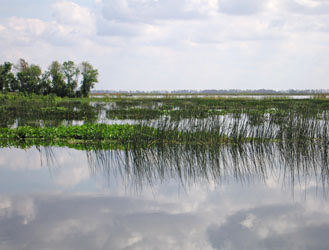More in Conservation
-


Governor Ron DeSantis Announces 50% Discounts for Florida State Park Passes and FWC Hunting and Fishing Licenses
Discounts available for three months, from Oct. 14, 2023, through Jan. 13, 2024 TALLAHASSEE,...
-


FWC promotes awareness and heightened enforcement for boating under the influence during Operation Dry Water this weekend
Operation Dry Water is a year-round Boating Under the Influence awareness campaign that facilitates...
-


Florida Fish and Wildlife halts bass tournament exemptions permits at Orange and Lochloosa Lakes for summertime events
The Florida Fish and Wildlife Conservation Commission has halted the use of bass tournament...
-


Reel in some Florida fun on license-free fishing weekends in June
The Florida Fish and Wildlife Conservation Commission (FWC) invites Florida residents and visitors to...


